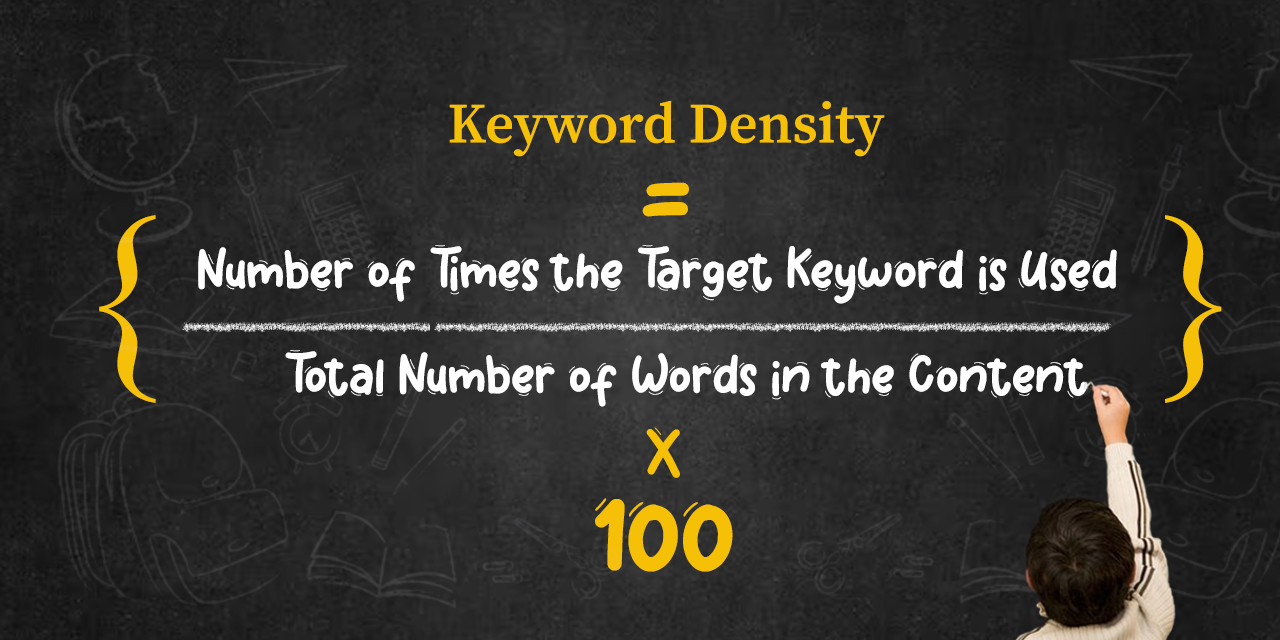
Is Keyword Density Still Important for SEO?
People have grown to assume that SEO is all about the use of the right words and phrases (also known as keywords). They also think that using these keywords in their content numerous times will ensure that they rank higher on SERPs. However, this is not true! Search engine optimization involves a wide range of aspects. Of course, keywords are essential, but “stuffing” them is not the only approach to an excellent digital presence. So, what is the ideal keyword density? Is it really important to focus on keyword density? We will have a look at this and much more in this blog. Read on!
What is Keyword Density?
Keyword density is a term used to describe how frequently your target keyword has been used in your content. It is stated in percentages and is often used by writers to describe how extensively they have used the keywords.
Keyword Density vs. Keyword Stuffing
When writing content for any digital platform, writers use keywords. The primary role of a keyword is to optimize your content and also tell the users what it is actually discussing. Usually, it is said that you should use one keyword after every 100 words in your content. However, if you use it more frequently, it will be termed keyword stuffing.
The Myth About Keyword Stuffing
One myth that has always revolved around the idea of SEO is that the use of more keywords is the best way to ensure better ranking. That is why many people end up asking their SEO agency in India to let them use more keywords in the content. This act of keyword stuffing sometimes even goes to the extent of keyword clustering. However, modern experts do not support the idea of keyword stuffing, nor does Google!
Factors Impacting Keyword Density (Calculating Keyword Density)
For those willing to hire SEO Services, it is important to understand not only keyword density but also the factors affecting it and how to calculate this metric. Let us discuss this in detail in thie section.
Basically, keyword density is dependent on two factors, namely:
- Frequency of keyword usage
- Total word count of the content
But how do you actually calculate the keyword density? By dividing the number of times the keyword has been used by the total word count and then multiplying this by 100 to get the value of keyword density in %. The formula is:

So, suppose you are writing a blog about the importance of backlink building, and your target keyword is “building backlinks.” Assume that the total length of your blog is 1000 words.
Now, if you use the target keyword 10 times in the content, the keyword density will be (10/1000)x100, i.e., 1%. On the contrary, if you had used the keyword 25 times in the blog, the keyword density would have been 2.5%. This is often also considered a case of keyword stuffing by SEO professionals.
So what changed for keyword density?
If you talk to any expert, you will understand that the world of digital marketing, specifically SEO, is constantly evolving. What used to be a trend that everyone hopped on a couple of years ago is now against search engine algorithms. One such aspect of SEO is keyword density. The year 2024 has seen one of the most dramatic changes in how we perceive keyword density and keyword stuffing.
Earlier, it was considered that the more you use your target keywords in the content, the chances of your webpage ranking higher on search engine result pages will be higher. This is probably one of the primary reasons why keyword density was one of the most significant parts of a successful SEO strategy back then.
As things changed, the emphasis has shifted to improving the user experience. Consequently, the popularity of keyword density as a ranking factor has gone extinct. The twist here is that apart from no longer being a ranking factor, keyword stuffing is also penalized by search engines like Google. Hence, if you are building an SEO strategy in 2024, it is important to focus on the other aspects of search engine optimization and not waste your energy on stuffing keywords into your blogs, articles, web content, etc.
Conclusion
All in all, keyword density, which was considered a very important aspect of SEO, has lost its value in 2024. Hence, it is essential for SEO experts and business owners to stay educated about the latest trends and technologies that have emerged in the SEO landscape and devise a strategy accordingly!





